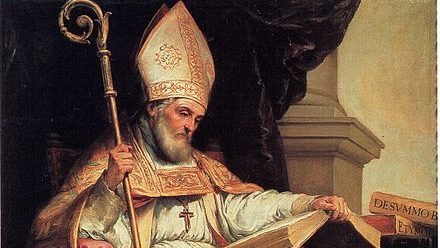St. Isidore was born in Spain around the year 560. Two of his brothers became bishops, and his sister a nun, and all three were canonized as saints along with Isidore.
Isidore’s brother Leander was the archbishop of Seville, and had a strong influence on his younger brother. He helped Isidore develop a commitment to prayer and work for the good of the Church, and Isidore joined him in converted the heretical Visigoths who had invaded Spain.
When Leander died, Isidore succeeded him as archbishop. He was determined to preserve the wisdom of the Church, even against the changes in his country from the culture of barbarian tribes. Isidore encouraged study and development in law, medicine, foreign languages, and philosophy, and compiled the first encyclopedia written from a Catholic perspective, the “Etymologiae.”
Under Isidore’s leadership, local councils pronounced the orthodoxy of the Spanish Church, fighting against errors about Christ and the Trinity. To guard the faithful against heretical doctrines, these councils promoted extensive education of the clergy.
Isidore intensified his charitable works to the poor in the last months of his life. Many in need came to his residence, and received help.
St. Isidore died on April 4, 636. He was later named a Doctor of the Church, and has recently been proposed as a patron saint of internet users because of his determination to use the world’s knowledge for the glory of God.

